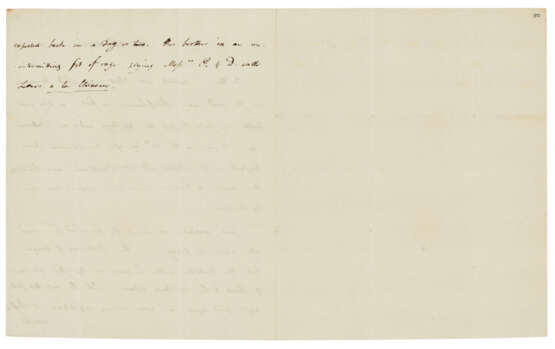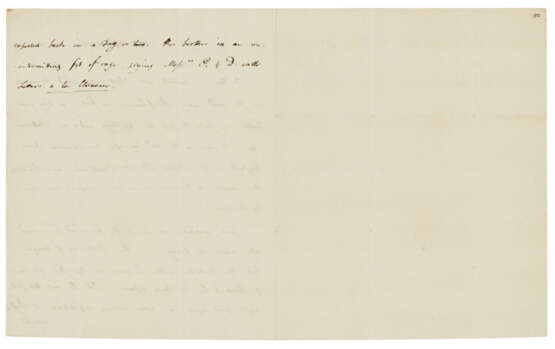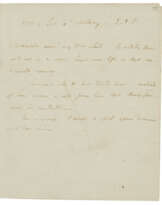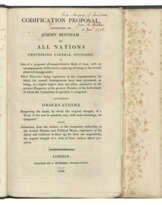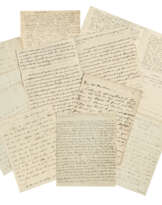ID 1109079
Lot 279 | Jeremy Bentham (1748-1832)
Estimate value
£ 6 000 – 9 000
Three autograph letters to [William Petty, 1st] Marquess of Lansdowne, 1794-1796
11 pages in total, 230 x 188mm, on three bifolia and a singleton, Shelburne pagination. Provenance: Marquesses of Lansdowne; their sale, Christie’s, Bowood House sale, 12 October 1994, lot 6.
Bentham despatches three missives to his patron on matters ranging from Shelburne’s prodigal son, Lord Wycombe, to the acquisition of books and a French cook. 26 June 1794: ‘Mr [John Farr] Abbot saw Lord Wycombe on the road near Schaffhausen on foot, in very good health, in haste to pass the dog- days under an Italian sky’, thanking Lord Lansdowne for his ‘kind offer about the proxy. The Bill out of danger, but the Bastille still hanging in the Air, for want of land to be set down upon’; 11 December 1794: asking for payment for books purchased on behalf of Lord Lansdowne, ‘All this will seem a dream to you: but if you will enquire whether such books are in the library, you will probably find them there: and if you enquire from what Bookseller they come, you will hear of none’; 9 February 1796, Queen’s Square Place: a humorous letter asking Lord Lansdowne to employ his French cook, who he has been forced to let go due to lack of funds, reassuring his correspondent of the efforts of neighbours and acquaintances to keep him fed.
John Petty was returned to the Commons as MP for Chipping Wycombe in 1786 at the behest of his father, Lord Lansdowne, who was determined that his son ‘take a manly part in politics, be it aristocrat or democrat’. Frustrated, however, by his continued dependence on his father’s favour, Wycombe escaped to Europe in 1789–90, where he experienced the first stirrings of the French Revolution. In 1791, he travelled to America, returning to England in 1792 as an outspoken critic of the government, before leaving for the continent again in 1794. His arrival home after three years of travel in Italy and Switzerland marked a break in relations with his father; he repaired to the family’s Irish estates, where he fell under suspicion of involvement in the United Irish rebellion in 1798. That same year he would be described by Bentham – his father’s patron and his personal friend – as a man who has ‘begun to feel his ground by taking some novel propositions’.
| Artist: | Jeremy Bentham (1748 - 1832) |
|---|---|
| Place of origin: | England |
| Artist: | Jeremy Bentham (1748 - 1832) |
|---|---|
| Place of origin: | England |
| Address of auction |
CHRISTIE'S 8 King Street, St. James's SW1Y 6QT London United Kingdom | |||||
|---|---|---|---|---|---|---|
| Preview |
| |||||
| Phone | +44 (0)20 7839 9060 | |||||
| Buyer Premium | see on Website | |||||
| Conditions of purchase | Conditions of purchase |

